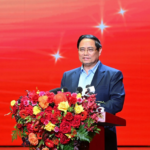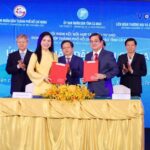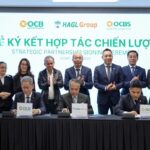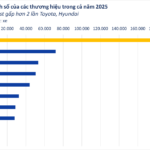On November 26th, 2025, during the official discussion session of the Autumn Economic Forum, Mr. Long Guoqiang, Deputy Director of the Development Research Center of the State Council of China, emphasized that digital transformation and green transformation are the two dominant trends shaping the future of global development.
According to him, green transformation does not compromise growth but aims for a high-quality economic model, based on carbon neutrality and sustainable development goals.

Mr. Long Guoqiang, Deputy Director of the Development Research Center of the State Council of China, discusses green and digital transformation at the forum.
China’s practical experience demonstrates that with long-term planning, technological innovation, and appropriate supportive policies, sectors like renewable energy and green transportation can still grow rapidly while reducing global costs. This underscores the critical role of technology and institutions in the transformation process.
He stressed that digital transformation should go hand in hand with green transformation. Technologies such as AI, big data, the Internet of Things (IoT), and cloud computing can optimize urban management, transportation, production, and reduce emissions.
Therefore, Ho Chi Minh City needs to integrate these strategies into urban development planning, prioritizing clean energy, electrified transportation, green production, and data infrastructure as the foundation.
Additionally, strengthening international cooperation and building an innovative ecosystem are key factors for Ho Chi Minh City to accelerate its journey toward becoming a world-class green and digital metropolis.
“Climate change knows no borders, and green transformation is an opportunity to create a sustainable future for all nations,” Mr. Guoqiang emphasized.
Prof. Young-Sup Joo, Honorary Professor at Seoul National University and Chairman of the Korea Digital Innovation Association (KoDINA), also suggested that Ho Chi Minh City, aiming to become a world-class metropolis, should place AI and data at the center of its development model.
According to him, the world is undergoing three major waves of transformation: digital transformation, the AI revolution, and green transformation. In this context, Ho Chi Minh City should not only aim for growth but also prioritize sustainable development in terms of environment, society, and human well-being.
AI is not the ultimate goal but a tool to enhance human capabilities, resolve governance bottlenecks, and promote shared prosperity.

Prof. Young-Sup Joo, Honorary Professor at Seoul National University and Chairman of KoDINA, speaks at the forum.
To realize the vision of a smart, safe, healthy, and sustainable city, Prof. Young-Sup Joo suggested that Ho Chi Minh City should build a shared data platform, connecting key areas such as transportation, energy, education, healthcare, and the environment.
On this foundation, AI will analyze, forecast, and support accurate decision-making in urban governance rather than relying on emotions.
Simultaneously, Ho Chi Minh City needs to develop a robust innovation ecosystem, promote R&D, strengthen cooperation between the government, businesses, and academia, and expand international collaboration to learn from advanced development standards and models. A metropolis driven by AI must ensure flexibility, adaptability, resilience, and a unique identity.
“Ho Chi Minh City can learn from other leading nations in building smart cities to avoid repeating mistakes. Ho Chi Minh City has the opportunity to become an AI-led metropolis, harmoniously developing in terms of environment, economy, and human well-being,” Prof. Joo emphasized.
Strategic Partnership Signed Between OCB, OCBS, and Hoang Anh Gia Lai
On November 25th, Orient Commercial Bank (OCB), OCBS Securities Company (OCBS), and Hoang Anh Gia Lai Corporation (HAGL) officially signed a Strategic Cooperation Agreement. This partnership aims to promote green finance and drive sustainable development.
Strategic Partnership Signed Between OCB, OCBS, and Hoàng Anh Gia Lai
On November 25, 2025, Orient Commercial Joint Stock Bank (HOSE: OCB), OCBS Securities Corporation (OCBS), and Hoang Anh Gia Lai Joint Stock Company (HAGL, HOSE: HAG) officially signed a Strategic Cooperation Agreement. This partnership aims to promote green finance and drive sustainable development.
MB Successfully Secures $500 Million Green Syndicated Loan on the International Market
On November 24, 2025, Military Commercial Joint Stock Bank (MB) successfully finalized a $500 million syndicated Green Loan agreement in the international market. This milestone underscores MB’s commitment to expanding financial support for sustainable development projects.




















